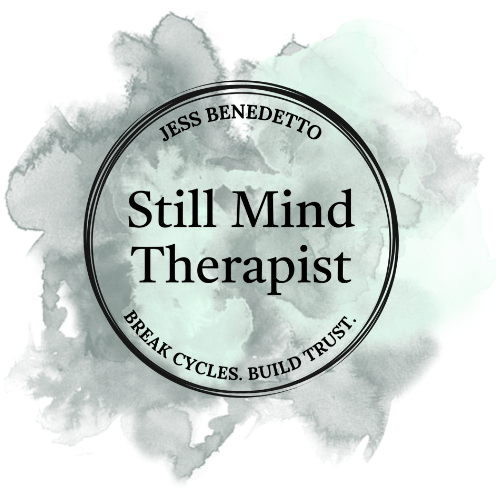What Does It Really Mean to Be Trauma-Informed?
“Trauma-informed” has become a buzzword across wellness spaces, from yoga studios to therapy offices. But what does trauma-informed therapy actually mean — and how can it help you heal?
At Still Mind, being trauma-informed isn’t a trend. It’s a compassionate, evidence-based way of understanding how your past experiences shape your present thoughts, emotions, and relationships. It’s about creating a safe, judgment-free space where healing becomes possible at your pace.
Here’s what it really means to work with a trauma-informed therapist — and why it matters for your mind, body, and relationships.
Trauma Is More Common Than We Think
Many people think of trauma as something that happens after extreme or life-threatening events. But trauma can also develop from chronic stress, emotional neglect, loss, or invalidation — experiences that leave you feeling unsafe or unseen.
In trauma-informed therapy, the focus shifts from “What’s wrong with me?” to “What happened to me?”
That perspective opens the door to understanding, not blame — and helps you see your patterns as adaptive responses to pain, not personal flaws.
Trauma isn’t just about what happened — it’s about how your nervous system learned to protect you and what safety looks like now.
Safety Comes Before Strategy
Healing from trauma requires more than coping skills or mindset shifts — it requires safety.
Before you can process painful memories or change behavior, your body and mind must know that it’s okay to relax.
A trauma-informed therapist focuses first on helping you feel grounded and safe — emotionally, physically, and relationally. That might look like:
Slowing down when emotions feel overwhelming
Naming sensations or reactions without judgment
Building trust before diving into deeper work
At Still Mind, safety is the foundation. Every conversation, boundary, and decision honors your pace and your needs.
The Mind-Body Connection in Trauma
One of the most important principles of trauma-informed care is understanding that the body remembers what the mind forgets.
Trauma is stored not just in memories, but in the nervous system — in tension, numbness, flashbacks, and even chronic pain.
That’s why trauma-informed therapy integrates mind-body awareness and regulation tools like mindful breathing, grounding, and gentle movement. These practices help bridge the gap between “I know I’m safe” and actually feeling safe.
When your nervous system begins to settle, it becomes possible to approach difficult memories and emotions with compassion instead of fear.
Empowerment and Collaboration in Healing
Traditional therapy models sometimes focus on the therapist as the “expert.” In contrast, trauma-informed therapy is collaborative and empowering.
At Still Mind, clients are active participants in their healing. You decide what topics to explore, how fast to go, and what feels right in the moment. This approach rebuilds a sense of agency — the belief that you have control over your choices, your boundaries, and your healing journey.
That empowerment is what helps transform survival patterns into growth and self-trust.
Healing Is a Process, Not a Destination
A trauma-informed approach recognizes that healing isn’t linear. You don’t “get over” trauma — you learn to move through it with awareness, skill, and compassion.
Progress might look like:
Noticing when you’re triggered, and pausing instead of reacting
Setting boundaries that protect your peace
Reconnecting with your values and purpose
At Still Mind, therapy combines trauma-informed principles with Acceptance and Commitment Therapy (ACT) — an approach that helps you make peace with what you can’t control and commit to what matters most.
The goal isn’t to erase pain, but to create space for meaning, connection, and self-trust.
Living a Trauma-Informed Life
You don’t have to be in therapy to live more trauma-informed. You can start by:
Offering yourself patience when you feel reactive or numb
Listening to your body’s cues for rest, connection, or movement
Surrounding yourself with emotionally safe people and spaces
Replacing “What’s wrong with me?” with “What do I need right now?”
Living this way helps you build resilience and compassion — the cornerstones of long-term healing.
Final Thoughts: Trauma-Informed Therapy as a Path to Wholeness
To be trauma-informed is to honor your story without letting it define you. It’s to recognize that healing requires safety, awareness, and trust — not perfection.
At Still Mind, we offer trauma-informed therapy and wellness coaching that honor your unique pace and experience. Our goal is to help you rebuild trust in yourself, strengthen your relationships, and live with a greater sense of calm and connection.
If you’re ready to begin your healing journey in a safe, supportive space, reach out to Still Mind today.

